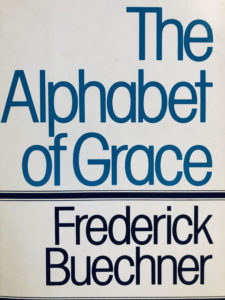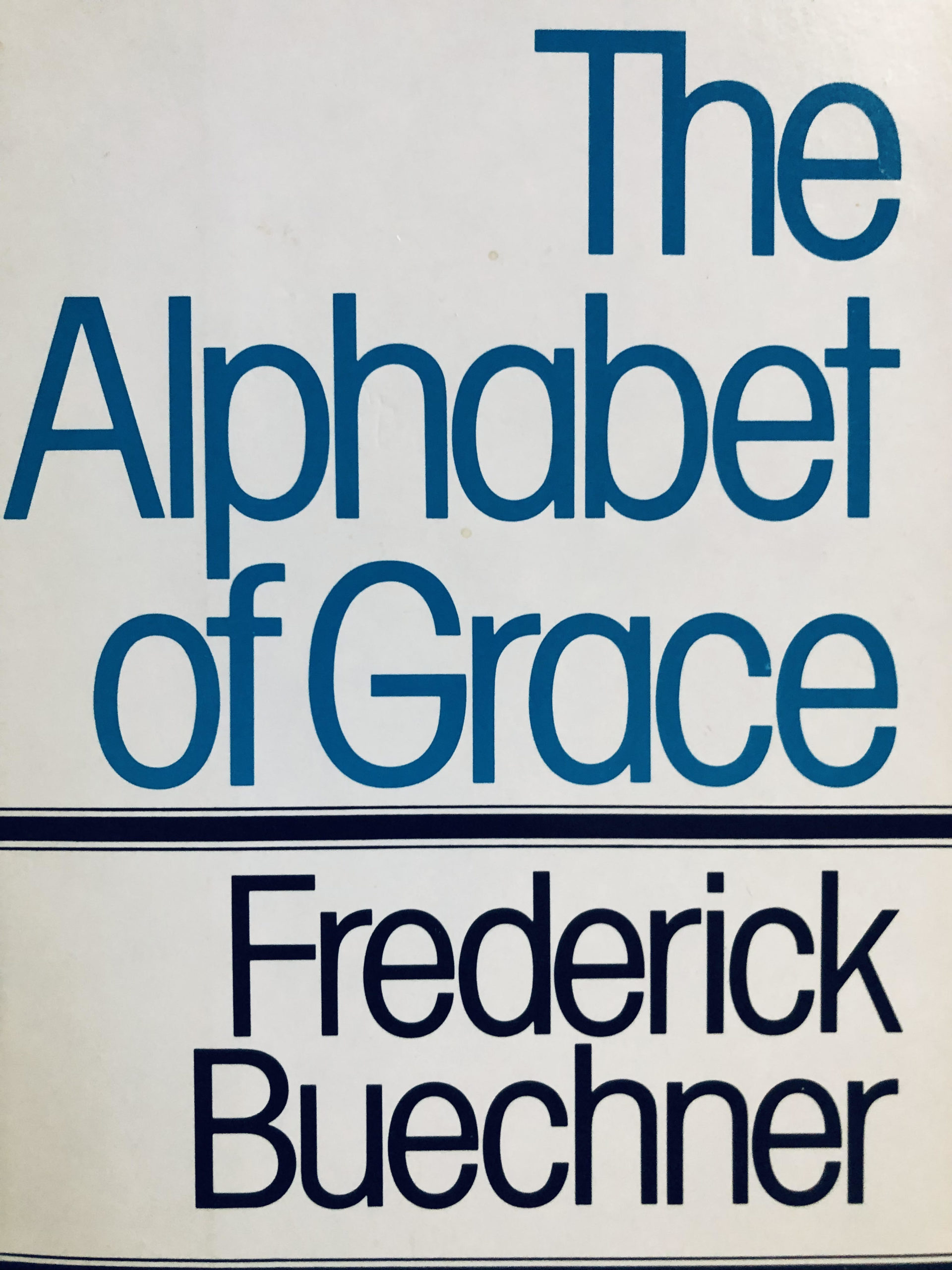
The Alphabet of Grace: Buechner’s spiritual interpretation of a typical day.
Blessed are the pure in heart, for they will see God (Matthew 5:8).
The blessing, to “see God,” and the virtue, purity of heart, need each other. For the desire to see God is the fire that purifies the heart. In this sense, the Beatitude says, blessed are those who want to see God, for they will get what they want.
To see God in this sense means much more than the tourist’s or spectator’s payoff of seeing the Grand Canyon or Michelangelo’s David, the Presidential Inauguration or Game Seven of the World Series. It is more like the baby gazing into her mother’s eyes. It is intimacy.
Yet, God warned Moses, “You cannot see my face; for no one shall see me and live” (Exodus 33:20). On the other hand, we believe that by coming in human form, in Christ, we see what we can of God (see John 14:9). The seeing does kill us, in a sense, kills the “old man” as Paul said, and ushers in the new person, a new life.
Frederick Buechner wrote, “I think much of what the Christian faith is….is seeing the face and being still; that is all” (“The Face in the Sky” in The Hungering Dark, p. 13). The face, of course, is Christ’s face. In a summary statement about his gradual conversion, he said:
Though I was brought up in a family where church played virtually no role at all, through a series of events from childhood on I was moved, for the most part without any inkling of it, closer and closer to a feeling for that Mystery out of which the church arose in the first place until, finally, the Mystery came to have a face for me, and the face it came to have for me was the face of Christ (Now and Then, p. 4).
Such vision comes, for Buechner, as sheer grace, unmerited. A pure heart is undivided and fully ensconced in the beloved. We never achieve that, really, but by grace we find ourselves there for moments, catching glimpses of Christ.
In The Alphabet of Grace, Buechner describes the spiritual experience of a typical day in his life. Read this book as a meditation on Christ’s blessing of the pure in heart with the vision of his face, a movement through fragmentation of self and motive to a single self in love with God.
Buechner begins The Alphabet of Grace by confessing that he is a “part-time Christian because part of the time seems to be the most I can manage to live out of my faith” (p. vii). Moreover, he lays out his fragmentation:
Beneath the face, I am a family plot. All the people I ever have been are buried there – the bouncing boy, his mother’s pride; the pimply boy and secret sensualist; the reluctant infantryman; the beholder at dawn through hospital plate-glass of his first-born child….[They] live inside me to this day….And buried in me too are all the people I have not been but might be someday – the Boston Strangler and St. John of the Cross, Heliogabulus and Dagwood Bumstead, Judas Iscariot and Robin Hood and Little Nell, all the lives I have not yet lived like promises not yet kept, dreams waiting for or dreading the possibility of being dreamed (pp.14-15).
Yet, the singular self emerges and comes to life from this “necropolis” in expectant attention to Christ addressing us in everyday experiences:
The alphabet of grace is full of sibilants – sounds that can’t be shouted but only whispered: the sounds of bumblebees and wind and lovers in the dark, of white-caps hissing up flat over the glittering sand and cars on wet roads, of crowds hushed in vast and vaulted places, the sound of your own breathing. I believe that in sibilants life is trying to tell us something, to take us somewhere (p.50)…..
Moreover,
[We] are all of us more mystics than we believe or choose to believe….We have seen more than we let on, even to ourselves. Through some moment of beauty or pain, some sudden turning of our lives, through some horror of the twelve o’clock news, some dream, some breakfast on the first and last day of our lives, we catch glimmers at least of what the saints are blinded by. Only then, unlike the saints, more pigs always than heroes, we tend to go on as though nothing has happened. To go on as though something has happened even though we are not sure what it was or just where we are supposed to go with it, is to enter that dimension of life that religion is a word for (p. 81).
And, I submit, “to go on as though something has happened” amounts to claiming the blessing of the pure in heart, the mystic’s experience of the divine. That requires spiritual practices, beginning with “compassion: that sometimes fatal capacity for feeling what it is like to live inside another’s skin and for knowing that there can never really be peace and joy for any until there is peace and joy for all” (p.75).
It requires inner cleansing, such as that Buechner practiced before his day’s writing when he said, “‘In the name of Jesus of Nazareth….I bid that I fall into no sin this day nor run into any kind of danger’….I do not now ask strength to resist the evil I choose but invoke power to protect against the evil that chooses me…Cruelties, lusts, deceits….Blasphemies….Old grievances” (p.81).
Finally, it requires prayer, even – or especially – when the answers come slowly if at all. On Jesus’s teaching of persistence in prayer, Buechner wrote in Wishful Thinking,
[K]eep on beating the path to God’s door, because the one thing you can be sure of is that down the path you beat with even your most half-cocked and halting prayer the God you call upon will finally come, and even if he does not bring you the answer you want, he will bring you himself. And maybe at the secret heart of all our prayers that is what we are really praying for (“Prayer,” Wishful Thinking, p.87).
That is what the pure in heart want. Blessed are they, for they will get what they want.
Related Posts
Frederick Buechner: Putting Color Back In the Cheeks Of Grace
Two Books On Telling For Those Who Mourn
Clay Jars and Peculiar Treasures: Saints in Buechner’s Writings
Vocation: Your Deep Gladness Meets the World’s Deep Hunger
“The Miracles at Hand”: Buechner On the Good Samaritan
Click here to see the Amazon.com web page for The Alphabet of Grace.


Something stirs in me when I read or hear pure truth. Buechner reveals his shadow side which makes me say, “me too!”. I immediately ordered The Alphabet of Grace from Amazon. Thanks for the inspiration. I look forward to your emails so much.
Thanks, Candace. Buechner is willing to share his vulnerability, which is quite validating for mere humans like us! I am especially glad you were inspired to order The Alphabet of Grace. That book inspired me to say, “I want to write too!”
Thanks, Marshall.
Buechner’s thought on being all those people of his past speaks to my idea that we are all the type soils in Jesus’ parable of the sower. We are totally these soils at all times, we just do not recognize or realize it.
So true, not to mention that we are all sheep and goats!